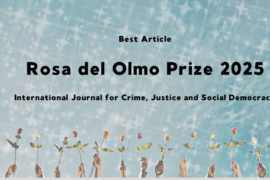

(L: Francis Nona and R: Professor Rowena Maguire)
Image courtesy Getty Images
QUT Lecturer and PhD student Francis Nona led a research team who wrote a report titled, “Indigenous-led Rights-based Approaches to Climate Litigation”. The report recognises that in Australia, Aboriginal and Torres Strait Islander peoples are and will continue to be disproportionately affected by the direct and indirect impacts of climate change. The report concludes that strategic climate litigation is required, enabling communities to advocate for their rights in a constructive and meaningful way.
Read the full report here.
A recent Australian Climate Case – Pabai Pabai v Commonweath of Australia – was led by traditional owners from the Torres Strait who face losing their island homes under rising seas. Uncle Pabai and Uncle Paul argued that by failing to prevent climate change the Australian government has unlawfully breached its duty of care because of the severe and lasting harm that climate change will cause to their communities. They sought an order from the court requiring the government to prevent this harm by cutting greenhouse gas emissions.
Read more about the case here.
The decision on this case was handed down on Tuesday 15 July 2025 and was unsuccessful.
Last Wednesday (23 July 2025) the world’s highest court, the ICJ (International Court of Justice) – also known as The World Court – provided an advisory opinion stating that nations have an obligation under international law to prevent climate change – and they may be liable to pay compensation if they fail to do so.
This case was campaigned for by various nations, and was led by Pacific Island country Vanuatu. The case began in a classroom in 2019, when a group of Pacific Islander law students in Vanuatu looked for a way to solve the apparent international “deadlock” on climate change action. They decided to ask the World Court to clarify what responsibilities nations had to address climate change, and soon gained diplomatic support from Vanuatu’s government, which led a successful global campaign for the ICJ to hear the case.
This case has implications for countries like Australia in saying that states have an obligation to take action on climate change, but that they must also regulate the entities that operate within their jurisdiction – which ties in private sector and other stakeholders.
Read more about the case and the implications for countries like Australia here.
Professor Rowena Maguire provided media commentary on this opinion to ABC Radio Melbourne – Conversation Hour at 11:24 a.m. – Isentia
While non-binding, this powerful ICJ advisory opinion has significant implications for future cases like Pabai Pabai v Commonwealth of Australia and other countries by providing strength to nations most vulnerable to climate change.





Comments are closed.